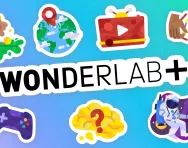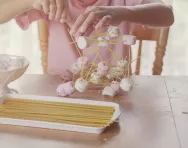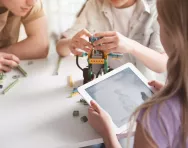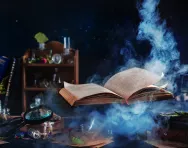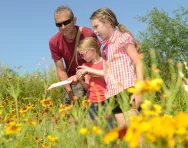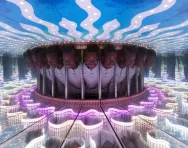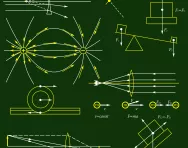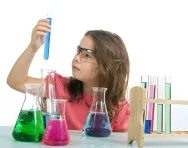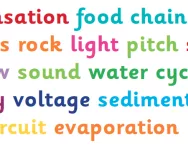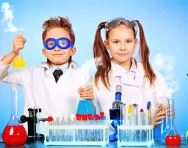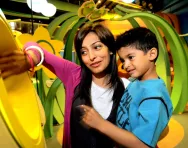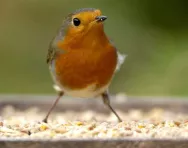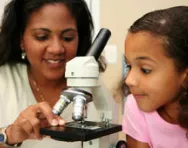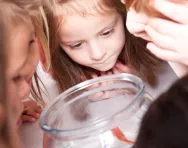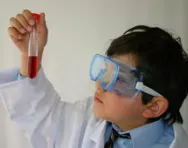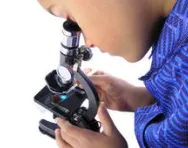6 interactive games to ignite scientific curiosity at home
Looking for ways to nurture your child's natural curiosity in science? Hands-on activities and experiments at home offer an exciting way for children to explore the wonders of the world around them.
Summer science projects for Y6 to Y7 transition
Help your child prepare for secondary-school-level work by supporting them with a summer science project. Caitlin Brown, Education Manager at the British Science Association, explains why devising, completing and presenting their own science investigation is one of the best ways for your child to prepare for Year 7 this summer – and great fun, too!
Best science apps for kids
Help your child discover science through play with these brilliant games-based apps and introduce physics, chemistry and biology the digital way.
Halloween science fun
Watch as a tissue ghost magically dances without you touching it, tie a bone in a knot to learn why calcium is so important for strong bones and taste some realistic-looking worms, made using the power of chemical crosslinking. This Halloween, try some spooky, creepy science fun!
Museums reviewed by parents: London Wetland Centre
Get a taste of the wild without leaving the capital (or getting your feet muddy!) at WWT London Wetland Centre, a 105-acre wetland visitor centre in Barnes, southwest London. Home to wildlife species including birds, water voles, bats and amphibians, the Centre offers a great family-friendly day out.
Museums reviewed by parents: Science Museum London
Contemplate the awe-inspiring complexity of life and human scientific achievement at London's Science Museum, one of the world's leading attractions. There's something for the whole family to enjoy, from toddlers to teens, and the addition of the new Wonderlab permanent gallery for kids makes it a must-visit destination. On your marks, get set... wonder!
What is a force?
Without forces our world would be silent and immobile. We explain what children learn about forces in Year 3 and Year 5 in the primary-school classroom, and how you can support their learning with hands-on activities and experiments at home.
What is a fair test?
Understand what is meant by 'fair test' in primary-school science and organise your own child-friendly investigations at home to help your child practise this concept.
Primary science glossary for parents
From condensation to the water cycle, TheSchoolRun's primary-school science glossary offers a complete guide to all the concepts children are taught in EYFS, KS1 and KS2 science. Brush up on your own science knowledge, clear up homework confusion and understand exactly what your child is learning at school by reading our basic definitions (with links to more detailed explanations, teachers' tips and examples).
Best chemistry sets for children
Introduce your child to the world of chemical reactions, crystallisation and chromatography with the right chemistry set for every age and stage. From pre-schooler test tubes and safety goggles to pipettes of luminol and alcohol burners, we've picked great kids' chemistry sets for every budget and every budding chemist.
Museums reviewed by parents: Eureka!
One of the best children's museums in the world, Eureka! is packed with hundreds of hands-on exhibits designed to inspire children to learn through play. Our family testers were amazed at what's on offer and determined to be regular visitors in the future.
How to make your garden bird-friendly
Birdwatching is a brilliant learning activity to do at home that can also encourage your child to take an interest in the outdoors. We speak to the RSPB about how you can make your garden or balcony more appealing for birds, leading to better birdwatching!
Simple science activities to try today
Science doesn't have to mean complicated experiments with chemicals and Bunsen burners. Children in the Early Years Foundation Stage can get involved in science with these fun, fast-results experiments. Sarah Cruickshank reports.
Primary science: what you need to know
Not sure what your child is learning in science? Swot up with our two-minute parents' guide to primary-school science.
Simple experiments for KS2 scientists
Have you got a budding Galileo or Newton in the family? Help your child's developing scientific enquiries by finding out what they will be learning in science lessons and how to support their practice at home.
Supporting KS3 science at home
As KS3 science becomes more in-depth, your child will benefit from your support. Here’s what they’ll learn and how you can help.
Reception science: what your child learns
Unsure what the science curriculum covers in Reception? Read on to find out.
